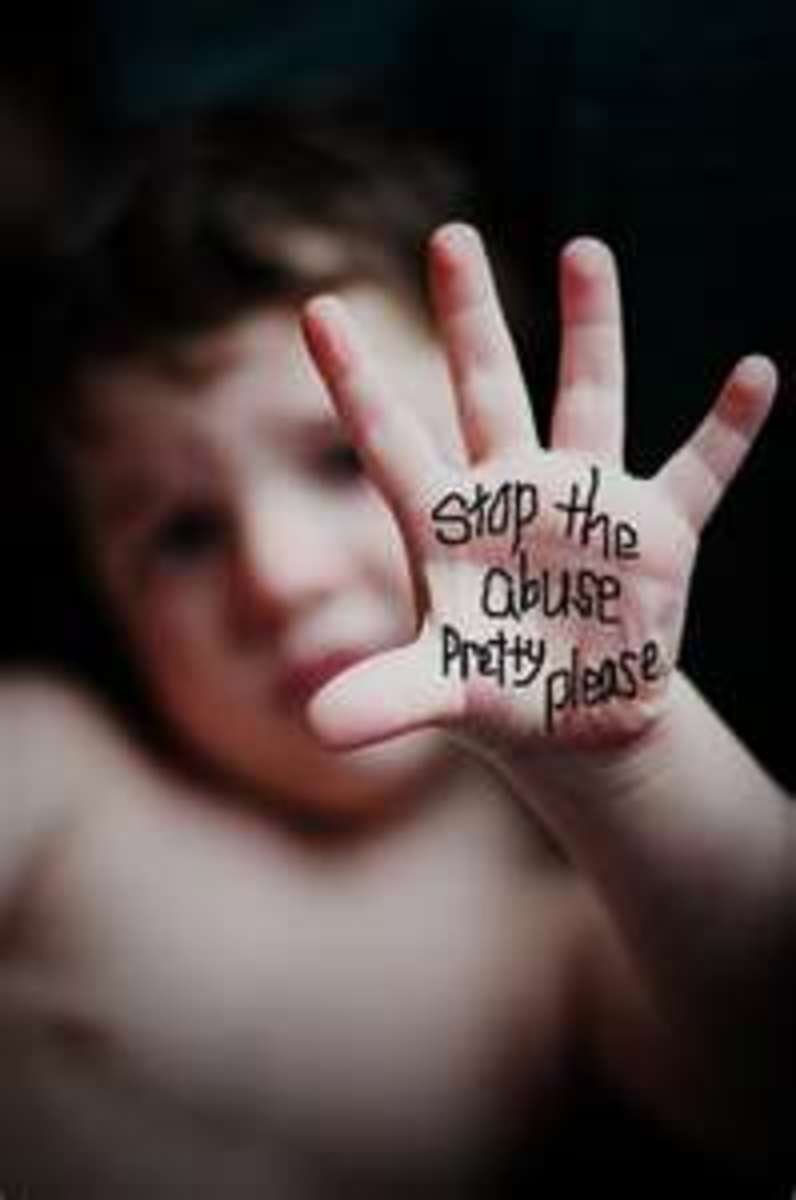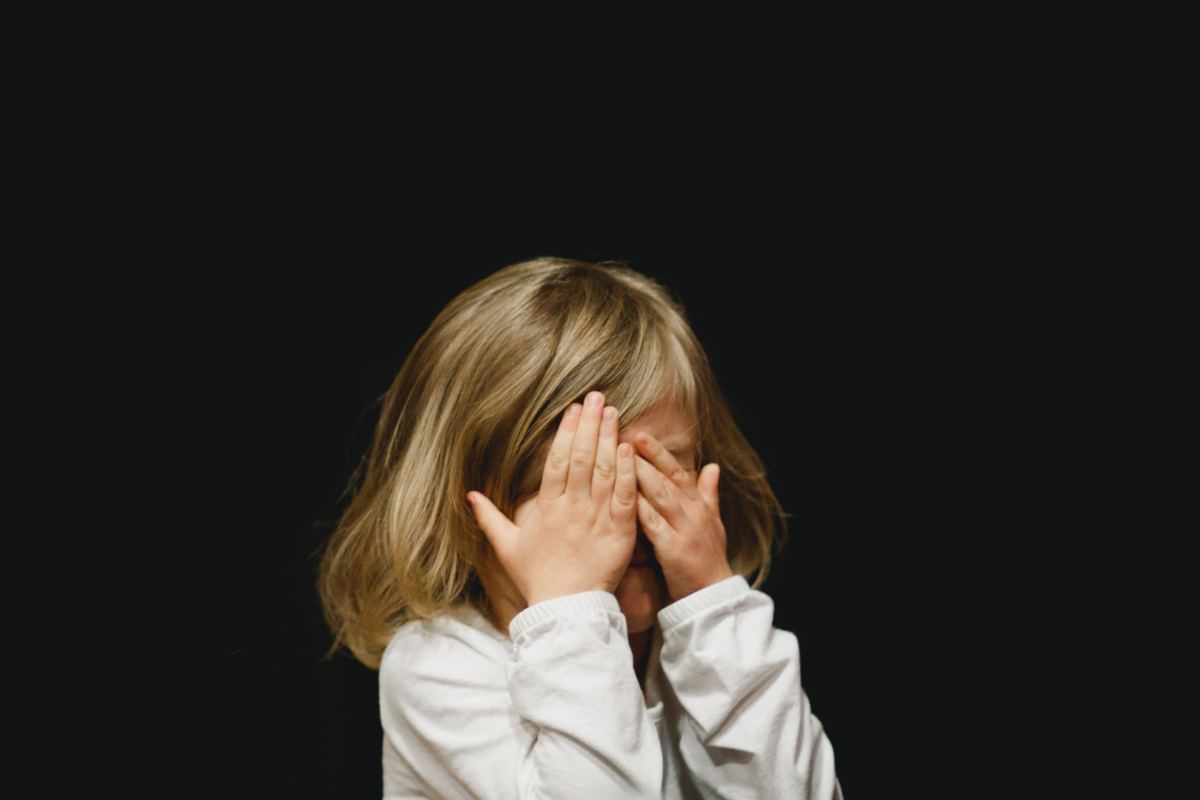How to Cure Fear of the Dark in Children
One of the most common child fears is that of being afraid of the dark or nyctophobia. The fear usually starts in toddlers around the age of two to four years, but can start when a child is older.
Their fear of the dark becomes apparent when they simply won’t settle at night, and can disrupt the whole household if it is not resolved.
I was afraid of the dark when I was small, so when I had my four children I expected them to be too. My first two children were, but the other two seemed fine. I looked back and tried to analyze why that might be, to learn what makes children afraid of the dark. Here are my findings, along with some great ideas to cure your children of their fear of the dark, especially when it comes to bedtime.
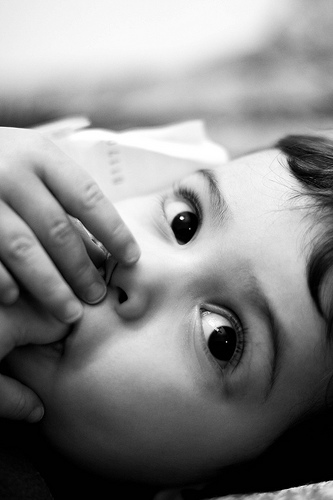
Why do Children Fear the Dark?
Babies are not born to be scared of the dark. They have spent plenty of time in the darkness of the womb, so are accustomed to it. With my first two children, I left on a low wattage table lamp all night in the first six months or more. This was for my benefit more than theirs. It just helped me to be able to see my babies and because of the night feeding, made things easier. I didn’t do this with my subsequent babies. Could this have had an effect I wonder? Perhaps they grew used to sleeping in light at night, even though that light was quite dim.
When our babies are born, we tend to keep them close by. All of mine were placed in a Moses basket to sleep in the lounge during the day and evening, until I went to bed. Of course it is light during the day, and a light is turned on in the evening, so they sleep in light. Perhaps this is the start of a potential problem? Maybe they learn to associate light with sleep. The problem with that theory is that my last two children didn’t have a fear of the dark.
Moving on to toddlerhood, when fearing the dark tends to start, we can certainly pinpoint reasons why they may become afraid.
Toddlers have an imagination, and this imagination can run riot because they are not able to separate reality from fantasy. Think of anything you may have said or done that might have influenced their fear of darkness, such as making boogeyman threats if they misbehave or to get them to do something. Pretending to be a monster might seem like great fun to some parents, but to a toddler it provokes all kinds of interpretations.
My mother pretended that the cupboard door knobs that I had a fascination for were actually spiders, to prevent me opening the doors. I grew to have a fear of spiders!
Monitor what your Child Watches on Television
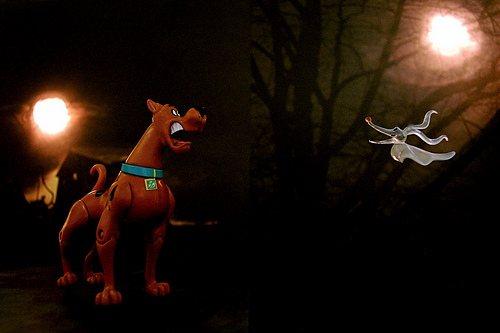
My son loved the programme Scooby Doo on television when he was four years old. Spooks of Bottle Bay and Casper the Friendly Ghost were popular, particularly with my first two children. Looking back now, I can see how programmes such as these may actually instill fear in a child, especially of the dark. I always remember the last line from the theme tune of The Trap Door, “Stay away from that Trap Door, cos' there's somethin' down there” (Bob Heatlie). For children who are afraid of the dark, or for any small child, that “something” could be anything!
Television programmes, whether they are meant for children or not, can sometimes provoke fear, simply because they don’t always understand what they are watching. If you couple misunderstanding with an inability to differentiate between what is fake or real, you have the recipe for some childhood fears.
I was much more careful with my last two children and tended to vet much more closely what they watched on television.
Fear of the Dark Quiz
At what age did your child grow out of fear of the dark?
Any noise can frighten a child.
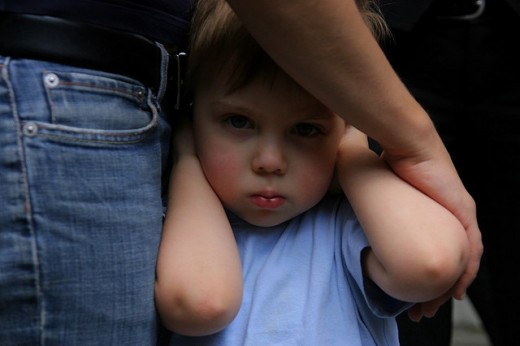
Curing Your Child’s Fear of the Dark
Talk about their fear – It is important to take your child’s fear seriously, and show an interested and calm manner when discussing the problem. Don’t just try to dismiss it, make fun of the fear or say anything that would give weight to it. Find out exactly what the bottom line fear is about. Usually monsters or ghosts may be the actual fear and not the dark. Alone in bed and in the dark, a child has much time to use their imagination. If it is monsters and the like, you can say quite honestly that there are no such things as monsters.
Some children are afraid of noises in the dark. We all hear them sometimes during the night; the sound of expanding water pipes in the airing cupboard or that creaky stair for example. Take your child to the source and show them what the noise is if possible, preferably during the day time.
Check out the bedroom – Go and take a look round the child’s bedroom and check out for things that may be perceived as scary at nighttime. Imagine you are the frightened child; what shapes and shadows do you see that could be interpreted as a fearful object? Give your child some say (age applicable) in how they want their room decorated and where they want things to be placed.
Good Books on Being Afraid of the Dark
Buy books on being scared of the dark – Try and get your child to understand how others are afraid of the dark sometimes, and how they conquer the fear. Through story books or audio CDs you can help make your child feel better and less alone with their fear. Always check out the books you buy for sinister pictures.
Monitor what your child watches on television – Don’t assume that because a children’s television show is on before your child’s bedtime, it is suitable for them to watch. If you have a child who is going through being scared in the dark, you need to be very vigilant and sensible about what you allow them to watch.
Calm your child before bedtime – The calmer your child is before going to bed, the better. Always wind down with a book, but stick to happy stories! Goldilocks and the Three Bears used to frighten my first child, and when I was a child I was scared of Hansel and Gretel. Switch off the television and make a point of having a half hour wind down time. Cuddles before bedtime with little excitable stimulation will calm your child down. Always make sure your child knows that you are there for him/her, but don’t make it blatant in a way that would feed the fear.
Buy a low wattage lamp – There is nothing wrong with buying a low wattage bedside lamp for your child’s bedroom. We don’t have to sleep in the dark. You can buy all manner of low lights for night time and that alone can sometimes diffuse the fear. As your child gets older, you could try leaving on a hall or landing light with the bedroom door ajar, and gradually over time shut the door a little more. Do not shut the door fully on a child who is afraid of the dark!
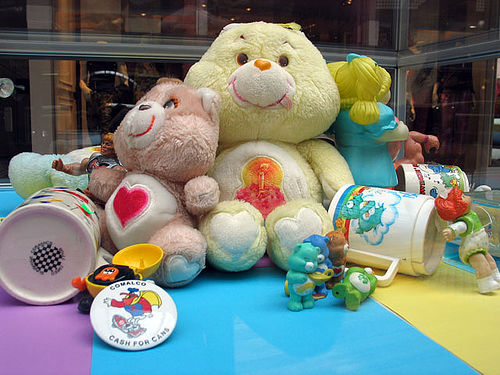
Using some magic for fear of the dark - Buy a stuffed toy that looks friendly. A teddybear is perfect. I bought my last two children Care Bears to sleep with, and told them that they were special bears who would look after them until they woke up! I actually bought a bedroom door guard toy for one of my children who was afraid, and that seemed to help. I did read somewhere that one lady sprayed magic spray (water with essential oils), around the room to eliminate “monsters” and it worked with her child. You have to be careful however not to do something that says “yes, there are monsters”! Don’t play into it too much and be subtle in your approach.
Don’t be temped to take your child into your bed – Taking your child into bed with you because of a fear of the dark, reinforces that they have something to fear, and doesn’t allow them to deal with and get over the fears. Some parents do it out of pure desperation, but if it has got to that stage it is better to seek outside help than resort to habits you will regret at a later date.
Excellent video on childhood fears
Don’t show frustration and anger towards your child – A child’s fear at night time, when you yourself are tired, can really test your patience, but if your child sees that you are uptight they will become even more fearful. A frightened child need a parent who is calm and in control.
You can feel as though you have been the best parent in the world and still your child is scared of the dark. It may even be that you have a sensitive, anxious child generally speaking, and other anxieties need to be addressed. You should ask yourself if your child is generally anxious or sensitive about other things. It may be that there is conflict in the home, separation from a parent, an anxious parent or something else that is causing the child to be more fearful than usual. If all your attempts to handle or cure your child’s fear of the dark are failing, there is nothing wrong with seeking professional advice.
Children generally speaking do tend to outgrow a fear of the dark, but there are some that will take it into their adult life. If you can address it now then you should.




